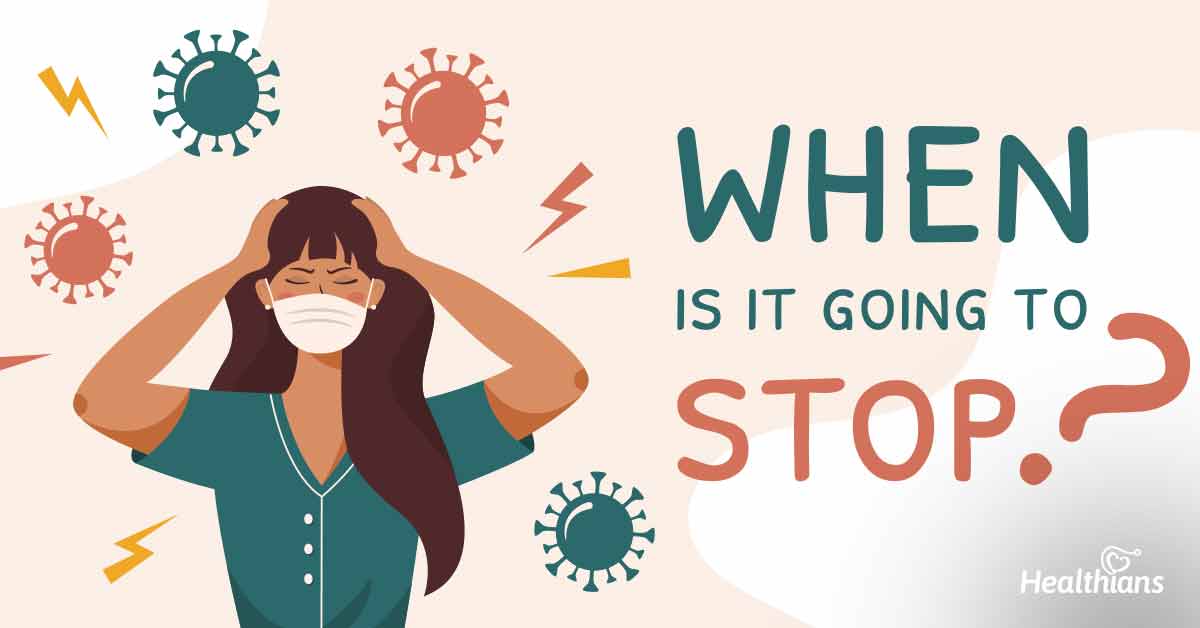Contributed by : Healthians Team
Today, once again, we find ourselves stuck at home with a sea of emotions that we can’t comprehend. Fear, depression, anxiety, and stress have become almost synonymous with the ongoing pandemic. However, there’s one more emotion added to the list, which can be potentially very toxic—ANGER.
From being irritated by the loneliness of social distancing to being overwhelmed for being required to wear a mask or being enraged towards people who do not follow lockout regulations—anger is everywhere! The onslaught of advice from social networking sites and peers further exacerbates the situation creating a heightened perception of insecurity. There’s denial. There’s grief. There’s anger.
So, if you find yourself being irritated by your partner’s behavior, yelling at your kids, throwing tantrums, or obsessively worrying about contracting the virus – don’t panic! You’re not alone!
Recurrent bouts of unmanaged anger can spill into other areas of life. It can erupt into aggressive behavior against your spouse and children, which is of particular concern now, as domestic violence cases have spiked during the pandemic.
Let’s delve deeper and find out how to avoid losing your composure and control minor outbursts of anger provoked by the coronavirus pandemic.
The Root of the Lockdown Fury
According to experts, the source of our recent feelings of rage and frustration may be a sense of loss. The loss of normalcy; the loss of connection with friends and family; and, most importantly, the loss of independence. This is hitting us and we’re angry.
Due to the pandemic and subsequent enforced lockdown restrictions, we’ve lost much of our usual outlets for venting anger, such as getting together with friends and venting our frustrations, going to the gym or mall, or going out for solo trips. With those exits shut off, here are some easy and efficient ways to stay cool instead of pushing yourself too hard or burn yourself out in these hard times.
Managing Anger During Lockdown
Identify your Personal Triggers
If you pay close attention, you’ll find the triggers. Maybe some of the people around you have habits that ignite your anger. Maybe it’s the news coverage of the mounting death toll that agitates you. Maybe it is social media that alleviate your frustration with its forwarded messages. Take note of what’s bothering you and adding to your escalating anger. If you’ve figured out why try to stay away from ruminating about them.
Let Go of External Triggers:
Keep in mind that you don’t have complete power over anything. You have no say over news broadcasts or how your neighbors’ act. Angry reactions in such situations can only harm your health. Instead of spending endless hours before the television brooding over external triggers, set limits on your media consumption. Look at the crisis from a third-person perspective, rather than being immersed in the current situation.
Look for Possible Solutions:
Instead of focusing on what made you angry, consider how you can fix the situation. Switch off the television if the news is making you angry. If your children refuse to listen to you, step away for a while and give yourself a break. Remind yourself that indignation isn’t going to help you. In reality, it can aggravate the situation and keep your temper levels high.
Grab a Break:
If you think things are getting too stressful, take a quick break. A few moments of silence, taking deep breaths, or listening to calming music can help you deal with your problems more effectively. Taking such brief breaks will allow you to de-stress and can enable you to react to a situation more rationally.
Exercise:
Although keeping a physically active lifestyle during the COVID crisis can be difficult, exercising for at least 30 minutes every day is the best way to keep the body moving and agile. When you exercise, your body produces endorphin, a hormone that relaxes your mind and makes you feel stronger and happier, allowing you to cope better with your anger.
Use Light Humor To De-Stress:
Laughing and loosening up will help you de-stress. Use light humor to lift your spirits and divert your attention away from your anger. Sarcasm, on the other hand, should be avoided because it can put pressure on your mind.
Try to Relax:
Easier said than done, it can be difficult to relax when you’re cooped up like this. However, consider what little adjustments you might make to help you efface the negative impacts of the pandemic. Dimming the lights, changing the room’s temperature, or playing soft music, for example, can help you calm your temper. You may try meditation and deep breathing exercises to lower stress and anxiety levels and boost your mood.
Practice Gratitude:
Try to turn your attention away from irritants and onto things that make you happy, things for which you are grateful. Rise above the anger and regularly practice gratitude. Gratitude can not only help combat angry feelings but is also conducive to your mental health and emotional well-being.
Consider Professional Support:
If you believe your rage is out of control and is causing a damaging effect on yourself and others, seek professional help. Your emotional well-being, as well as the well-being of those around you, is important. As a result, rather than dealing with anger management, seek professional support, if necessary.




